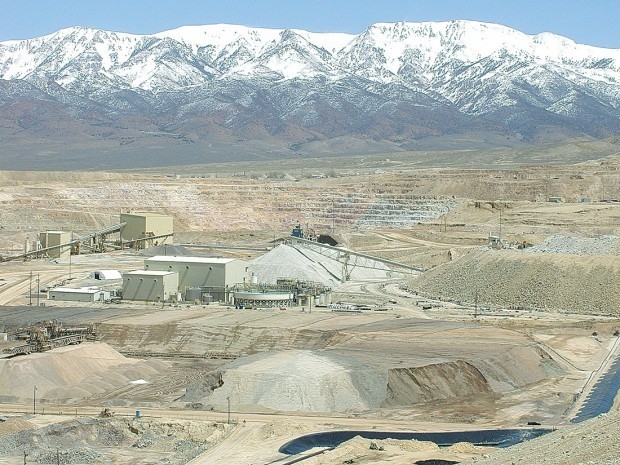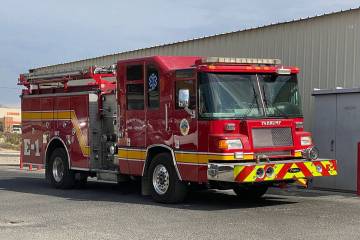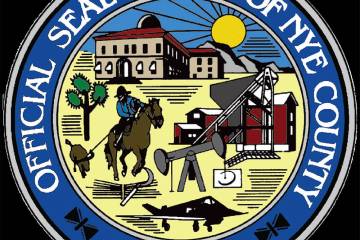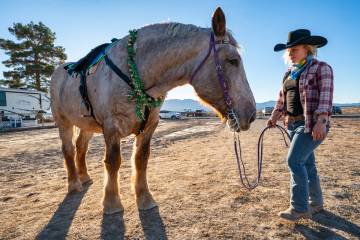Question 2: A tool for state legislators to raise mining taxes
CARSON CITY — Nevada voters will decide next month whether to give lawmakers the power to raise mining taxes — a revenue source long decried by critics as an under-tapped funding spigot shielded by the state constitution.
Whether or not passage of Question 2 will lead to more taxes on gold, silver and other minerals remains to be seen. But if history is any indication, lawmakers will seek to capitalize on the new tool in the budget box, should the measure pass, and again turn their eye toward all that glitters to boost state coffers.
State Sen. Tick Segerblom concedes that raising mining levies is the ultimate goal.
“It’s the first time in 150 years that the Legislature will actually have a chance to raise taxes on mining,” said the Las Vegas Democrat. “That is, in my perspective, incredibly significant.
“We’ve finally gotten rid of that stone around our neck.”
Question 2 is the last step in a process that began three years ago to purge a cap on net mining proceeds from the constitution.
Backers argue the industry has enjoyed special tax treatment since Nevada’s admittance to statehood in 1864. Mines pay a net proceeds tax, a figure calculated after costs of extraction and other expenses are deducted. A constitutional amendment approved in 1989 capped the tax on minerals at 5 percent.
Approval of Question 2 would allow legislators who meet every two years to adjust mining levies as an excise tax.
“After 150 years of mining running the store, their time is up,” said Bob Fulkerson, executive director of Progressive Leadership Alliance of Nevada, a liberal advocacy group that has led the charge to change the constitution.
“Voters are ready to tell mining it’s time to step up.”
The mining industry counters that it pays the same taxes as other businesses as well as the industry-specific net proceeds tax, and to suggest it is somehow shielded from taxes is a fallacy.
It also argues that altering the constitution should not be taken lightly and that lawmakers have the ability to raise taxes on the industry without tinkering with the constitution.
“If the Legislature wants to increase taxes on mining, they can currently,” said James Wadhams, a lawyer and lobbyist for the industry.
A FREQUENT TARGET
Nevada is the largest gold producer in the United States, and while the net proceeds tax is levied on all mining — from clay and lithium to oil and gas — it’s the big gold producers such as Newmont Mining and Barrick Gold Corp. that are frequent targets when Nevada lawmakers go panning for dollars.
As Nevada’s economy crumbled during the Great Recession, lawmakers meeting in a 2010 special legislative session enacted a tiered tax on mining claims, based on the number of claims held, that was designed to help plug an $800 million budget hole.
But a state judge in 2011 ruled that the fees amounted to an unconstitutional tax and the state refunded more than $8 million. That same year, mining companies were forced to give up some tax deductions.
While Nevada’s economy has been improving since then, the budget outlook is far from sunny.
State agencies have submitted general funding spending requests to Gov. Brian Sandoval totaling $7.7 billion for the upcoming two-year budget cycle, about $1 billion more than current spending levels approved by the 2013 Legislature.
Additionally, the Republican governor expected to easily win re-election has said increased funding for public schools will be a priority. Nevada also faces about $500 million in higher costs for growing Medicaid caseloads that are expected to approach a half-million people by the end of the 2017 budget year, officials have projected.
Mining, though the dominant industry in northern rural counties, accounts for only a small portion of state general fund revenues — between 3 percent and 4 percent. In contrast, sales taxes make up 31 percent of state revenues, followed by casino taxes at 23 percent.
According to the Nevada Department of Taxation, 34 gold and silver operators in Nevada had gross proceeds of $8.1 billion last year. After deductions, the net proceeds were calculated at $3.2 billion on which $74 million was paid to the state general fund; another $83.5 million went to counties where the mines are located.
When deductions exceed gross proceeds, no taxes are collected, a fact that irks former state Sen. Sheila Leslie, a primary backer of the move to remove mining taxation from the constitution during the 2011 legislative session.
“First and foremost, I think they should pay something. The general public needs to understand that many mines don’t pay anything,” Leslie said. “For me, it’s not so much the amount, it’s the type of tax and to ensure that there’s no way that they can deduct their cost of business so they pay nothing.”
MINING TAX HIKE NOT A GIVEN
Even if Question 2 is approved at the ballot box, raising mining taxes is not a given.
“All this does is allows the Legislature to consider increased mining taxes. Raising them will be a much tougher fight,” said Eric Herzik, political scientist at the University of Nevada, Reno.
“There will probably be proposals for raising the mining tax. That part wouldn’t surprise me. But, depending how this election comes out … if Republicans control the Senate and if Gov. Sandoval’s not onboard, then it goes nowhere,” Herzik said.
Raising taxes during the session also would require a two-thirds supermajority vote in both the Assembly and Senate, a formidable hurdle.
Sandoval opposes Question 2 and will vote no, said his campaign spokesman, Jeremy Hughes.
Democrats hold a razor-thin 11-10 majority in the Senate, but three key races could flip control to the GOP for the first time since 2008. No matter the outcome, neither party will emerge with the 14-senator majority needed to impose taxes or override a governor’s veto.
Still, a proposal floated last year by six Republican senators to raise mining taxes to 10 percent left industry executives jittery. Republicans traditionally had been friendly to mining, and the proposal by Senate Minority Leader Michael Roberson, R-Las Vegas, caught many off guard.
Roberson and others who backed the failed move, including Republican lieutenant governor candidate Mark Hutchison, have said the mining tax proposal was conceived as an alternative to try to defeat a business margins tax that is also on this year’s ballot as the Education Initiative.
But Roberson, as a freshman lawmaker in 2011, showed he would not be a partisan guardian of the industry when he grilled mining lobbyists about profits. He recounted growing up in a small mining town in Kansas, where he witnessed the environmental after-effects after minerals were depleted and the mining company pulled up stakes.
He said at the time that he was not anti-mining but questioned whether the industry should pay more. Two years later, he locked horns with mining officials during a legislative hearing over whether they would sue if the ballot measure passed.
Roberson voted in favor of Senate Joint Resolution 15 in the past two legislative sessions, helping to send it to this year’s ballot.
Sandoval, speaking separately with editorial boards at the Las Vegas Review-Journal and Reno Gazette-Journal earlier this month, said restructuring how Nevada funds education and state services would be a priority during his second term.
Though he provided no details, his comments suggested a possible overhaul of Nevada’s tax base that is heavily reliant on discretionary spending and prone to volatile economic swings.
Whether mining taxes will be part of that discussion remains to be seen, but Segerblom said passage of Question 2 would make the industry an equal participant.
“If everybody’s there at the table, then theoretically they can all ante up a little bit and we can come to an agreement,” he said.

















